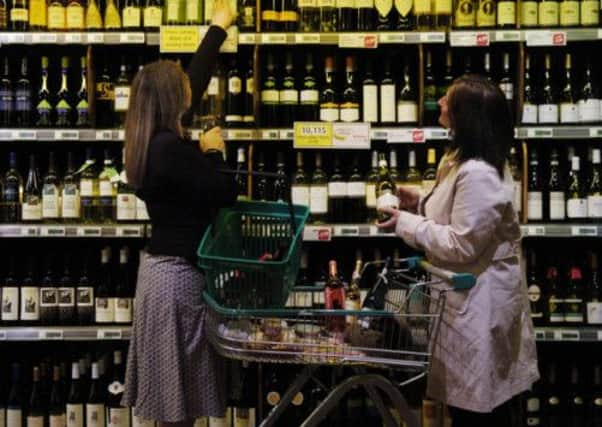Scottish alcohol multi-buy ban ‘has not cut sales’


Offers such as “buy one get one free” (Bogof) and “3 for £10” on products such as wine and beer were banned in Scotland in October 2011 in the Alcohol Act.
But a new analysis of consumers’ purchasing habits has found the measure failed to reduce the amount of alcohol bought.
Advertisement
Hide AdAdvertisement
Hide AdResearchers from the the Behaviour and Health Research Unit – a collaboration between the University of East Anglia and the University of Cambridge –said measures such as minimum unit pricing for alcohol were needed to have a real impact. Scotland’s plan to introduce a mininum alcohol price has been beset with legal challenges, delaying its progress.
The Scottish Government was among the first in the world to ban multi-buy promotions as part of efforts to combat excessive alcohol consumption, which is a major cause of ill-health and death, as well as economic and social harm.
After the ban was brought in, some campaigners accused shops of simply cutting the price of alcoholic drinks to compensate for the deals they were no longer allowed to offer.
To assess the impact of the Scottish ban, the researchers used detailed household purchasing data from the Kantar WorldPanel. The team – writing in the journal Addiction – found that as of June 2012, the data showed no evidence that the ban reduced the purchasing of beer, cider, wine, spirits and alcopops – or the total amount of units of alcohol bought.
Scottish consumers started buying fewer products per shopping trip than they would have without the ban, but went out to buy beer and cider – the drinks most discounted in multi-buys – more often, leaving the overall amount bought the same.
So while the number of products purchased on each shopping trip dropped by 8.1 per cent, the frequency of trips to buy beer and cider increased by 9.2 per cent following the ban.
Lead author Dr Ryota Nakamura, from the University of East Anglia, said: “The industry appears to have responded to the ban by replacing multi-buy with simple price reduction. This might have mitigated the intended effects of the policy.”
Prof Marc Suhrcke added: “More encompassing policy will be needed to achieve the goal of reducing excessive alcohol consumption and related harms.”
Advertisement
Hide AdAdvertisement
Hide AdBut Mark Robinson, public health information manager at NHS Health Scotland, said: “Using alcohol sales data, NHS Health Scotland and the University of Glasgow found that the introduction of the Alcohol Act was associated with a 2.6 per cent decrease in the amount of alcohol sold per adult. Similar declines were not observed in England and Wales. where the Alcohol Act does not apply.”